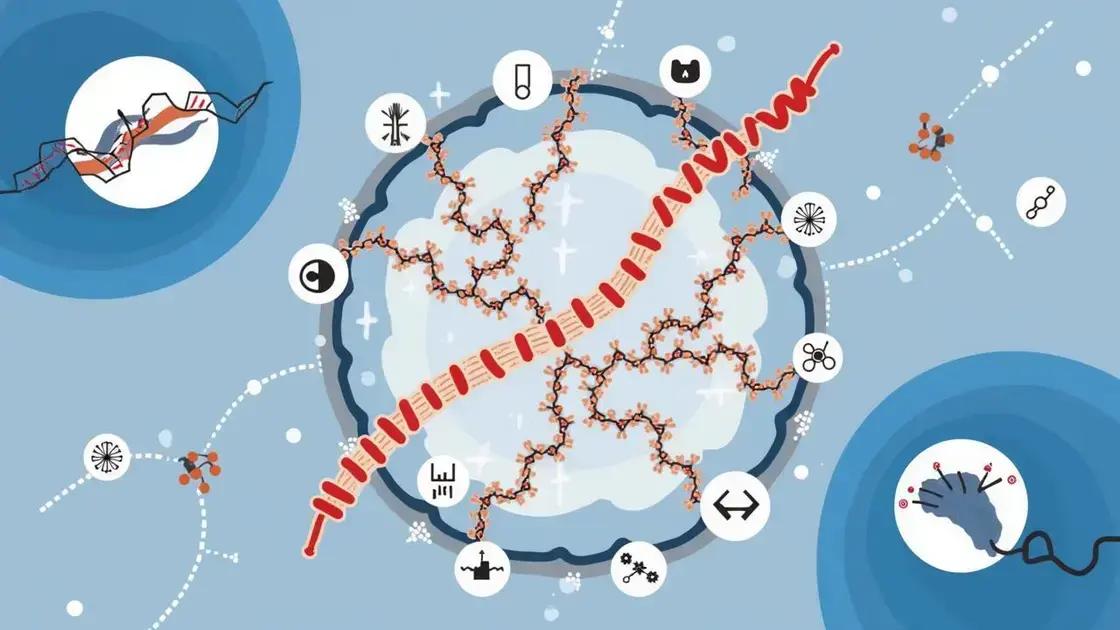Erectile dysfunction (ED) can have genetic links, as family history and specific genes may increase the risk. Managing genetic ED involves medical treatments, lifestyle changes, and emotional support, emphasizing the importance of consulting with healthcare professionals for tailored approaches to enhance sexual health.
Erectile dysfunction (ED) is a condition that affects many men, leading to concerns about its causes. One common question is, “Is erectile dysfunction genetic?” This article delves into the genetic factors that might contribute to ED, examining research and insights from the medical community. Understanding whether genetics play a role can empower individuals to seek appropriate treatment and open discussions about sexual health. Let’s explore the potential links between heredity and erectile issues.
Understanding Erectile Dysfunction

Erectile dysfunction (ED) is a common condition that affects a significant number of men at different ages. It is defined as the inability to achieve or maintain an erection sufficient for satisfactory sexual performance. Understanding this condition involves recognizing that it can result from a combination of physical, psychological, and lifestyle factors.
Physical Causes of ED
Many men experience ED due to physical health issues. Conditions such as diabetes, hypertension, and heart disease can negatively affect blood flow, which is crucial for an erection. Additionally, hormonal imbalances, particularly low testosterone levels, can contribute to erectile difficulties.
Psychological Factors
Psychological factors also play a significant role in erectile dysfunction. Stress, anxiety, and depression can interfere with the sexual arousal process, making it difficult for men to achieve an erection. Situational factors, such as relationship problems, can further exacerbate these issues.
Lifestyle Influences
Lifestyle choices can also impact erectile function. Smoking, excessive alcohol consumption, and lack of physical activity are all linked to higher rates of ED. Furthermore, obesity and poor dietary choices can lead to health conditions that contribute to erectile dysfunction.
Age and Erectile Dysfunction
As men age, the likelihood of experiencing ED increases. This may be due to the cumulative effects of health conditions, medications, and normal aging processes affecting the body’s ability to function sexually.
Seeking Help for ED
If you or someone you know is experiencing erectile dysfunction, it is important to seek professional help. A healthcare provider can assess the underlying causes and suggest appropriate treatment options, which may include lifestyle changes, medication, or therapy.
The Genetic Factors at Play

Research indicates that genetic factors can play a significant role in erectile dysfunction (ED). Certain inherited conditions and traits can influence a man’s likelihood of experiencing this issue. Understanding the genetic aspects involves looking at various factors including family history, specific genes, and overall health.
Family History and ED
Men with a family history of erectile dysfunction may find themselves at greater risk. If close relatives, such as fathers or brothers, have faced similar issues, it may suggest a genetic predisposition. This connection raises awareness of the importance of family health conversations.
Specific Genes Linked to ED
Research has identified specific genes that could be linked to erectile dysfunction. For instance, variations in genes responsible for regulating blood flow and hormone levels may contribute to ED. Genetic studies continue to explore how these variations might affect erectile function.
Understanding the Genetic Influence
A genetic approach to understanding ED covers how certain inherited conditions can interfere with normal sexual health. Conditions like Klinefelter syndrome, which affects testosterone levels, can lead to difficulties in achieving an erection. Recognizing these conditions is vital for suitable treatment.
Overall Health and Genetics
Genetics can influence not just erectile function but also broader health concerns. Since conditions like diabetes and heart disease have genetic components, they can also impact erectile function. Therefore, a man’s overall health and genetic background can provide valuable insights into his risk for ED.
Importance of Genetic Counseling
For men with a strong family history of ED, genetic counseling can be beneficial. It offers a chance to better understand individual risks and explore potential preventive measures. Talking to a healthcare professional about the genetic aspects can lead to informed decisions regarding sexual health.
How Genes Influence Sexual Health

Genes play a crucial role in influencing sexual health. They are responsible for various biological processes that affect how the body functions, including sexual performance and erectile function. Understanding how genes contribute to these aspects can shed light on issues like erectile dysfunction (ED).
Genetic Influence on Hormone Levels
One important way genes impact sexual health is through hormone regulation. Genes that dictate hormone production can affect testosterone levels, which are vital for sexual desire and function. Low testosterone can lead to reduced libido and erectile difficulties, making genetics a key factor in determining an individual’s sexual health.
Impact on Blood Flow
Genes also influence how blood flows through the body. Proper blood circulation is essential for achieving and maintaining an erection. Certain genetic variants can affect the blood vessels’ ability to expand, which may lead to problems with blood flow and result in ED. Understanding these genetic connections can help identify individuals at risk.
Inherited Conditions Affecting Sexual Function
Some genetic conditions can directly impede sexual health. For instance, conditions like Klinefelter syndrome and Turner syndrome affect the body’s ability to produce hormones properly. These inherited conditions can lead to various sexual health issues, including difficulties in achieving an erection.
Genetic Testing and Sexual Health
With advancements in genetic testing, individuals can learn about their genetic predispositions regarding sexual health. Identifying specific genetic markers can help those at risk for ED take preventive measures, such as lifestyle changes or early treatment options.
The Role of Environment and Genes
It’s important to note that while genes play a significant role in sexual health, environmental factors also contribute. A person’s lifestyle, diet, and overall health can interact with genetic factors to influence sexual function. Therefore, understanding this interplay can lead to better strategies for managing sexual health issues.
Research on Genetic Links

Research on genetic links related to erectile dysfunction (ED) is continually evolving, providing insights into how inherited factors can affect sexual health. Scientific studies have begun to uncover different genetic components that may play a role in causing ED.
Genetic Studies and ED
Numerous studies have examined the genetic links to erectile dysfunction. For example, researchers have utilized genome-wide association studies (GWAS) to identify specific genetic variants associated with ED. These studies analyze large populations to discover patterns that may indicate a genetic predisposition to sexual health issues.
Identifying Genetic Markers
Genetic testing has revealed various markers that might contribute to erectile dysfunction. Some identified markers are linked to conditions like cardiovascular diseases and diabetes, which are known to affect erectile function. Understanding these markers can aid in predicting risk factors for men with a family history of ED.
Understanding Heritability
Researchers estimate the heritability of erectile dysfunction to be significant. This means that genetics can influence a person’s vulnerability to ED. The shared genetics among families highlights the importance of considering hereditary factors when assessing and treating erectile dysfunction.
Implications of Genetic Research
The findings from genetic research have practical implications for education and treatment. Men who know they have a genetic predisposition to ED may become more proactive in managing their health. Early intervention and lifestyle changes could potentially reduce the risk or impact of this condition.
Future Directions in Research
Future research aims to deepen the understanding of how genetic factors interact with environmental influences. Continued exploration into the genetic basis of erectile dysfunction will help develop more targeted therapies and prevention strategies. By merging genetics with lifestyle factors, researchers hope to provide a holistic view of sexual health.
Managing Genetic Erectile Dysfunction

Managing genetic erectile dysfunction (ED) involves a combination of medical interventions, lifestyle changes, and emotional support. Understanding the genetic factors that may contribute to ED can guide individuals toward effective management strategies.
Medical Treatments
For those with genetic predispositions to erectile dysfunction, several medical treatments are available. Medications such as phosphodiesterase type 5 (PDE5) inhibitors are commonly prescribed to help improve blood flow to the penis, allowing for better erections. It is important to discuss these options with a healthcare provider to determine the best course of action.
Lifestyle Modifications
Making lifestyle changes can play a significant role in managing ED. Regular exercise, a balanced diet, and maintaining a healthy weight can positively impact sexual health. Avoiding tobacco and limiting alcohol consumption can also help improve erectile function and overall well-being.
Emotional and Psychological Support
Since erectile dysfunction can be emotionally challenging, seeking support is essential. Counseling or therapy can help address any psychological factors contributing to ED. These sessions can provide coping strategies and help couples improve communication regarding their sexual health.
Regular Health Check-ups
Regular check-ups with a healthcare provider are vital for managing conditions that can lead to ED. Conditions such as diabetes and high blood pressure can influence erectile function, so monitoring these health issues is essential for prevention and management.
Genetic Counseling
For men with a family history of ED, genetic counseling can be beneficial. It helps individuals understand their genetic risks and offers insight into lifestyle choices and preventive measures. This proactive approach empowers men to take charge of their sexual health.
Understanding and Managing Erectile Dysfunction
Erectile dysfunction (ED) is a complex condition influenced by various factors, including genetics. Through understanding the genetic links and the potential hereditary nature of ED, men can gain valuable insights into their sexual health.
Medical treatments, lifestyle modifications, and emotional support are essential components for effectively managing this condition. With advancements in genetic research, individuals are empowered to make informed decisions about their health.
Ongoing discussions with healthcare providers and potentially engaging in genetic counseling can help men navigate their risks and treatment options more effectively.
Ultimately, taking a proactive approach to managing erectile dysfunction can lead to improved sexual health and overall well-being.
FAQ – Frequently Asked Questions about Erectile Dysfunction and Genetics
What is erectile dysfunction?
Erectile dysfunction (ED) is the inability to achieve or maintain an erection sufficient for satisfactory sexual performance.
Is erectile dysfunction genetic?
Research indicates that genetics can play a role in erectile dysfunction, with hereditary factors contributing to its risk.
What are the common causes of erectile dysfunction?
ED can result from a combination of physical conditions, psychological factors, lifestyle choices, and genetic influences.
How can I manage genetic erectile dysfunction?
Management includes medical treatments like PDE5 inhibitors, lifestyle changes such as diet and exercise, and emotional support through counseling.
What role do lifestyle modifications play in treating ED?
Lifestyle changes such as regular exercise, a balanced diet, and avoiding tobacco and excessive alcohol can significantly improve erectile function.
How can genetic counseling help with erectile dysfunction?
Genetic counseling can provide insights into individual genetic risks for ED and guidance on preventive measures and lifestyle choices.












